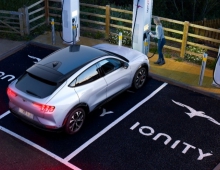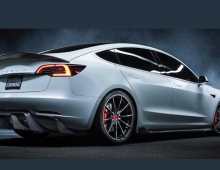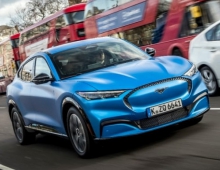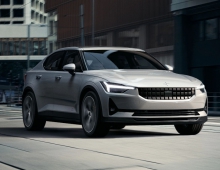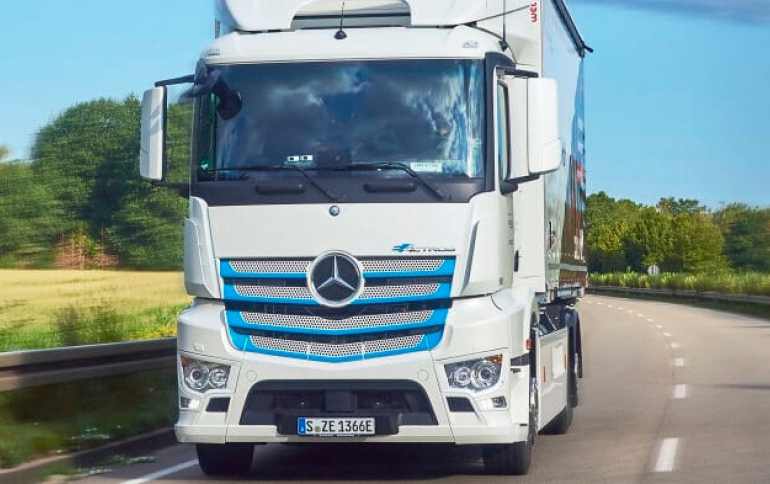
Daimler Trucks Launches Ecosystem for Entry into e-mobility
Daimler Trucks & Buses announced a holistic ecosystem for truck customers for the entry into electric transportation logistics.
This includes a range of consulting services and the installation of suitable charging infrastructure. The modular range includes not only personal and individual consulting, but also digital applications that make it easier to get started with e-mobility. In a first step, the Daimler 's focus will be on the markets of Europe, North America and Japan.
Gesa Reimelt, Head of E-Mobility Group Daimler Trucks & Buses: “As pioneers of e-mobility, our battery-electric trucks are already undergoing extensive practical trials around the world. Thanks to the close exchange with our customers, we understood early on the need to think far beyond the e-vehicle. That is why we offer an ecosystem tailored to the use case and needs of customers, including consulting and charging infrastructure solutions. This is how we want to provide our customers with the ideal entry into e-mobility.”
Daimler Trucks will offer a free application with the "eTruck Ready" app, with which the company's customers can determine, which operating profiles and routes are suitable for an e-truck. The smartphone app records the driving routes of a conventional vehicle: It captures speed, acceleration and altitude profile along the route. Important parameters such as the payload and the outside temperature can be added afterwards by fleet managers in an individual web portal. From this data, the program generates the respective range and expected power consumption of a suitable electric truck from the Daimler portfolio.
The tailored consulting services include, for example, indications of possible route optimization for electric trucks and suitable charging infrastructure. If required, Daimler's experts can create an individual operating cost analysis and take into account, among other things, public funding opportunities.
The charging processes for electric fleet vehicles are a significant factor, which needs to be considered in the operational flow. Therefore, a special focus of the consulting lies on the development and installation of intelligent charging solutions. For this, Daimler Trucks offers an analysis of the depots in close cooperation with external partners. Step by step, the team of consultants then specifies, for example, the charging stations suitable for the individual use case and possible extensions for the necessary power supply. Important factors such as charging location and charging time are taken into account as well.
Important cost factors for e-mobility in truck fleets include infrastructure costs. These can be significantly lower, if the charging infrastructure on the depot is designed for a comparatively low grid load. Other important cost factors include electricity costs. Electricity rates are based on a defined power requirement and certain consumption times. If the power specified in the electricity rate is not exceeded at a specific time of day, costs can be saved. Thus, the intelligent charging software controls the time-delayed charging of the vehicles or charging with a lower charging power, in order to minimize the load on the grid connection. Furthermore, the software integrates the charging process into the operating procedure. The vehicles are charged exactly when they are available, taking into account in particular their planned arrival and departure.
Daimler Trucks has been gaining experience with electric trucks since 2010 and since 2017 has had its first small series-produced all-electric truck on the market: the FUSO eCanter light-duty truck. Daimler says that more than 140 eCanter are already in service in cities worldwide, including New York City, Tokyo, Berlin, London, Amsterdam, Paris and Lisbon. The Mercedes-Benz eActros heavy-duty truck, with a range of up to 200 km, is in use by the company's customers in Germany and Switzerland as part of the eActros “innovation fleet”. In the United States, the medium-duty Freightliner eM2 and the heavy-duty Freightliner eCascadia are also undergoing field tests.
By 2022, Daimler Trucks & Buses’ plans to include series-produced vehicles with battery-electric drive in its vehicle portfolio in its main sales regions Europe, USA and Japan. By the end of the next decade, Daimler Trucks & Buses will extend its range of vehicles with hydrogen-powered series production vehicles.


